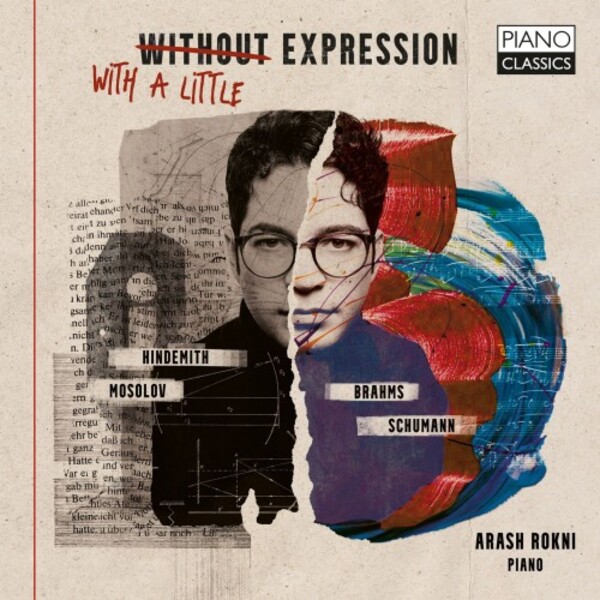
With a Little Expression: Schumann, Hindemith, Mosolov, Brahms
£10.40
In stock - available for despatch within 1 working day
Despatch Information
This despatch estimate is based on information from both our own stock and the UK supplier's stock.
If ordering multiple items, we will aim to send everything together so the longest despatch estimate will apply to the complete order.
If you would rather receive certain items more quickly, please place them on a separate order.
If any unexpected delays occur, we will keep you informed of progress via email and not allow other items on the order to be held up.
If you would prefer to receive everything together regardless of any delay, please let us know via email.
Pre-orders will be despatched as close as possible to the release date.
Label: Piano Classics
Cat No: PCL10303
Format: CD
Number of Discs: 1
Genre: Instrumental
Release Date: 12th April 2024
Contents
Works
Variations on a theme by Schumann in F sharp minor, op.9Suite '1922', op.26
Dances (2), op.23b
Nocturnes (2), op.15
Bunte Blatter, op.99
Artists
Arash Rokni (piano)Works
Variations on a theme by Schumann in F sharp minor, op.9Suite '1922', op.26
Dances (2), op.23b
Nocturnes (2), op.15
Bunte Blatter, op.99
Artists
Arash Rokni (piano)About
Born in Tehran in 1993, Rokni grew to love classical music through his parents, and he gained a place at the Tehran Music School before pursuing further specialist studies in Germany, at the conservatoires in Leipzig and Cologne, and he now holds teaching posts in both Cologne and Hannover. He won second prize and audience prize in the Bach Competition in Leipzig in 2018.
Arash Rokni has played and studied with Andreas Staier, having a particular interest in Classical and Romantic performance practice. This release marks his debut on Piano Classics, and establishes him as a thoughtful and accomplished musician with individual ideas about repertoire both familiar and lesser known. He plays two contrasting instruments, each chosen to complement the soundworld of their repertoire: an 1890 Bluthner for the Schumann and Brahms pieces, and a modern Paulello for Mosolov and Hindemith.
Mosolov is known for a single brief piece, the Iron Foundry for orchestra which won a kind of infamy for its naturalistic brutality. There is of course a good deal more to him than unrelenting dissonance, and his piano music shares with his contemporary Alexander Scriabin a mystical character, floating between and in and out of key signatures. Its specifically ‘expressive’ character is not straightforward, any more than the Suite 1922 where Hindemith plays with pop styles of the time such as jazz and ragtime. The expression of Schumann’s Bunte Blätter is not necessarily more straightforward, and Brahms made his own interpretation of it with a set of Variations which he wrote on the first piece in Schumann’s cycle.
Error on this page? Let us know here
Need more information on this product? Click here